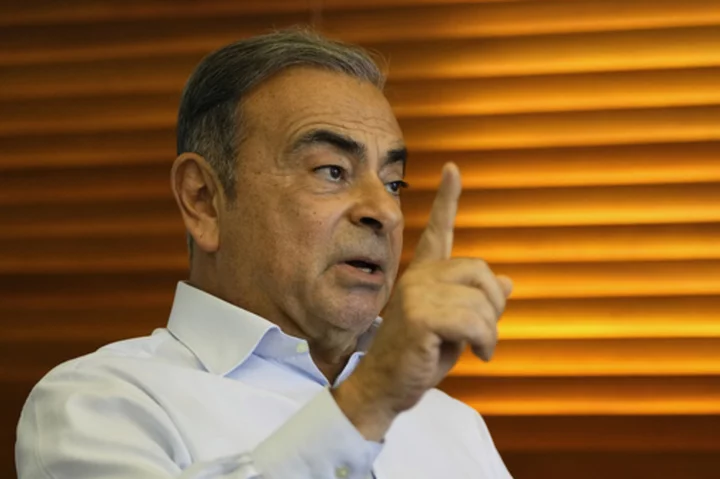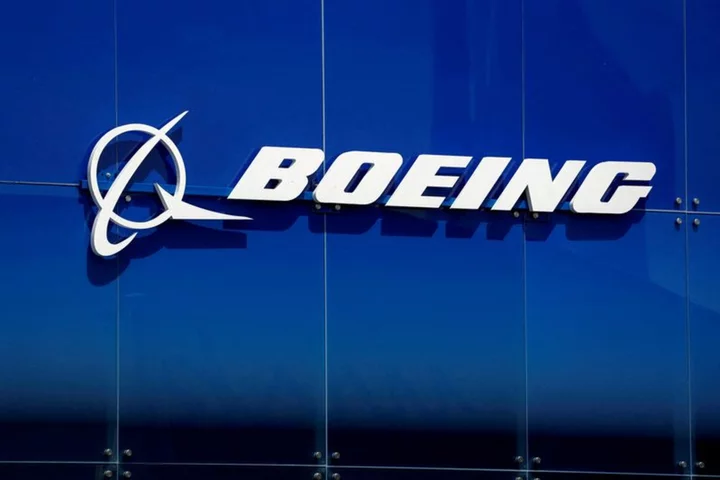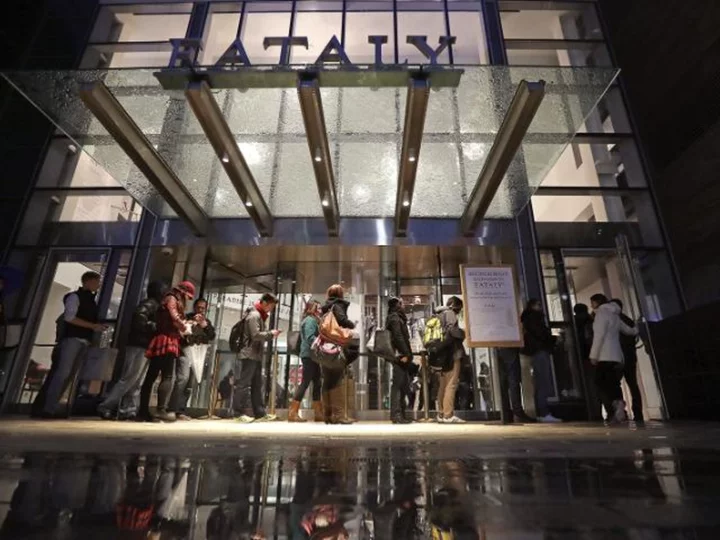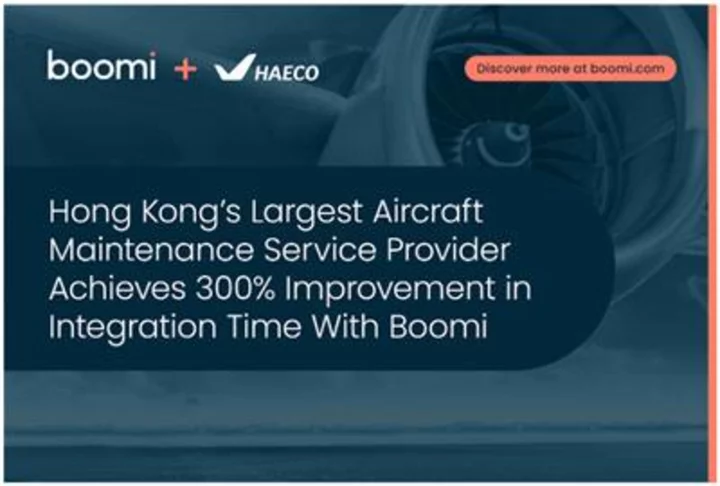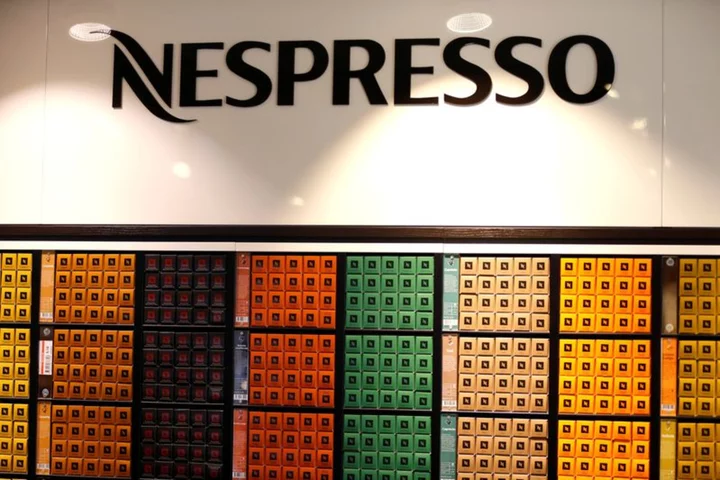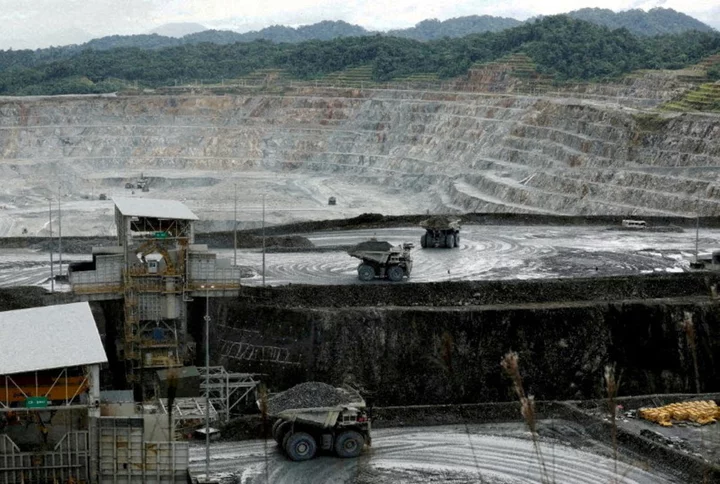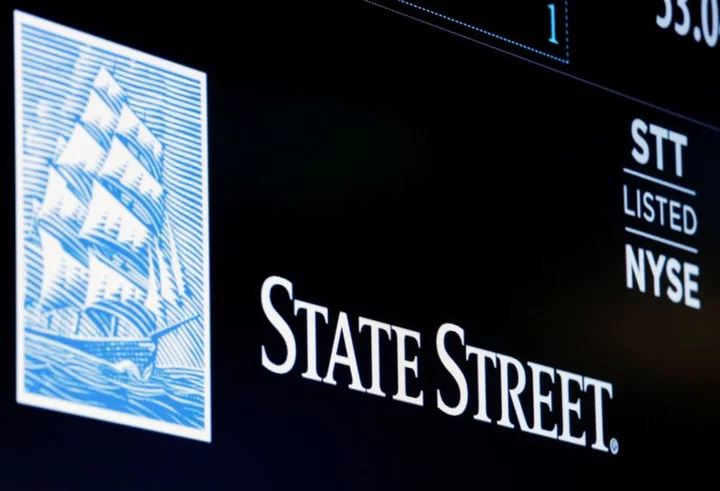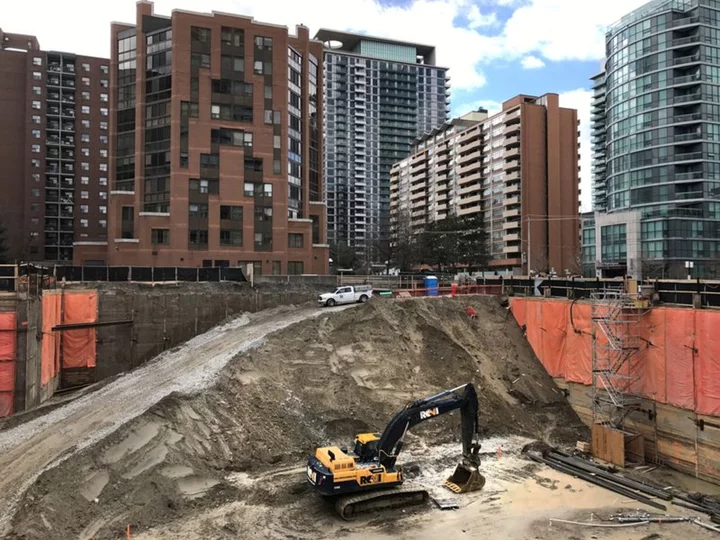BEIRUT (AP) — Carlos Ghosn said Friday that the $1 billion lawsuit he recently filed against Nissan and others is just the beginning of his fight.
The former Nissan CEO said during an interview with The Associated Press in Beirut that had he been an American citizen filing a lawsuit in the United States, “I would not be asking for $1 billion, but for much more,” given his suffering.
Ghosn led Japanese automaker Nissan for two decades, rescuing it from near-bankruptcy, before he was arrested in Japan in November 2018 on charges of breach of trust, misusing company assets for personal gains and violating securities laws by not fully disclosing his compensation.
He fled Japan in December 2019 for Lebanon where he has lived since.
Ghosn is wanted in Japan and France. Since he fled to Lebanon, Beirut has received three notices from Interpol based on arrest warrants for him from those countries. In France, he is facing a number of legal challenges, including tax evasion and alleged money laundering, fraud and misuse of company assets while at the helm of the Renault-Nissan alliance.
Lebanon has no extradition treaty with Japan and does not extradite its citizens.
Ghosn has French, Brazilian and Lebanese citizenship.
Ghosn was kept in solitary confinement in Japan for months without being allowed to speak with his wife. He has said he fled the country fearing he would have no chance of a fair trial.
Ghosn said it took him more than three years to file the lawsuit because he wanted it to be as solid as possible based on evidence, on facts, (and) on witnesses.” He added that “our intention is to win it, so in order to win it, it has to be substantiated by a lot of facts. That’s why it took a lot of time.”
A hearing date in the case by Lebanon's prosecution is set for Sept. 18.
Half of the money sought by the 69-year-old Ghosn is for damages, he said, while the other half is for compensation including salary, retirement funds and stock options.
Ghosn is also seeking monetary compensation from a Nissan affiliate based in Lebanon, as well as entities that took part in the investigation leading up to his arrest and those that obtained documents and computers from his homes.
When contacted by the AP in Tokyo for comment on the lawsuit, a Nissan official said: “We will not be commenting.”
Ghosn fled Japan after jumping a $14 million bail in a Hollywood-style caper. His improbable escape - hidden in a box stashed in the hold of a Turkey-bound private jet - embarrassed Japanese authorities and allowed him to evade trial.
Ghosn, however, alleges that he was ousted illegally from the company.
“You don’t want companies to be at ease with weaponizing the legal system to make a coup where they cannot change management in a legal way,” Ghosn said. “They use the legal system in order to get rid of management and to establish a new management and that’s exactly what Nissan has done.”
Ghosn said he had no choice but to challenge Nissan regardless of the odds of winning his lawsuit.
“Frankly, I’m not very optimistic about the future of the company,” Ghosn said.
Ghosn said he believes in the Lebanese justice system more than Japan's.
“You can defend yourself,” he said. He added that “I’ve been through the Japanese legal system, the so-called justice system, which, by the way, I’m criticizing it through my own experience.”
“The first time I was able to express myself and defend myself was when I arrived in Lebanon,” he said.
Ghosn claims to be the victim of a character assassination campaign led by Nissan with the complicity of the Japanese government, aided by accomplices in France.
Prosecutors in Japan have charged three Americans with helping Ghosn escape the country.
Asked if the lawsuit he filed means that he plans to fight back, Ghosn said that "this is the beginning of the fight.”

